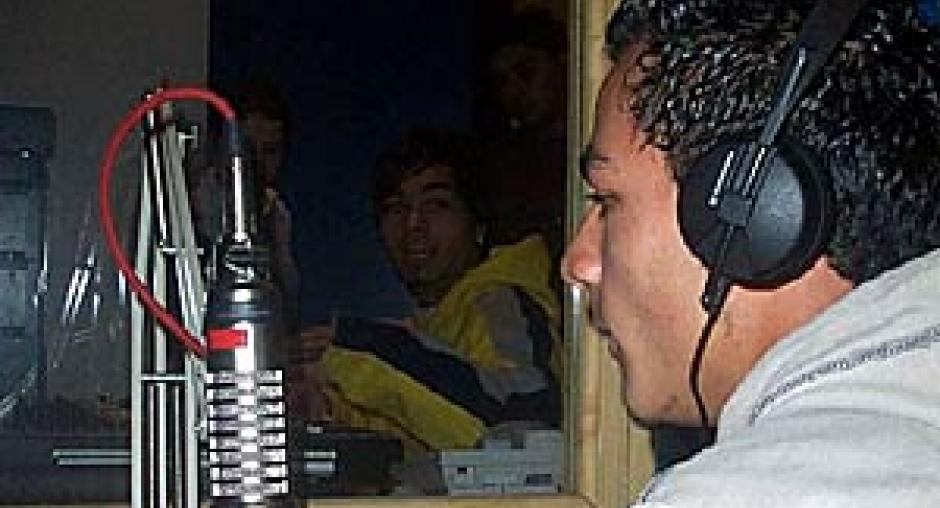Newsroom
OSCE's Skopje Mission assists national broadcaster in reform and restructuring process
SKOPJE 22 July 2003

(OSCE)Media management and marketing course are part of the media
training programme run by the OSCE Media Development Unit in
Skopje. (OSCE) Photo details
SKOPJE, 22 July 2003 - The OSCE Spillover Monitor Mission to Skopje co-financed the creation of a digital technology training unit of the public radio and television (MRTV).
The MRTV digital technology unit, which was opened today, is being supported by donations from the OSCE Mission's Media Development Unit, the United Kingdom based Thomson Foundation, the German government, the Dutch Foundation Press Now and the Canadian International Development Agency.
"Both the government and MRTV have requested help in this transformation process," said Maurice Canavan, Deputy Head of the OSCE Mission. "We are keen to assist them in their stated desire to make MRTV an independent public broadcaster that equitably represents all interests in the country."
The Digital Technology Unit is equipped with the latest digital broadcast technology including a computer room, digital TV and radio studios and digital audio-visual editing equipment.
Training courses will be given to staff from all the radio and TV language services. Courses will include advanced journalism skills, computer-based radio and TV editing, digital camera work and internet research skills.
The Unit is expected to train approximately 250 staff from MRTV by the end of September. Over the summer months, an international consultant, Russell Lyne, from the Thomson Foundation, will lead a team of six national trainers instructing TV and radio staff from MRTV.
The MRTV digital technology unit, which was opened today, is being supported by donations from the OSCE Mission's Media Development Unit, the United Kingdom based Thomson Foundation, the German government, the Dutch Foundation Press Now and the Canadian International Development Agency.
"Both the government and MRTV have requested help in this transformation process," said Maurice Canavan, Deputy Head of the OSCE Mission. "We are keen to assist them in their stated desire to make MRTV an independent public broadcaster that equitably represents all interests in the country."
The Digital Technology Unit is equipped with the latest digital broadcast technology including a computer room, digital TV and radio studios and digital audio-visual editing equipment.
Training courses will be given to staff from all the radio and TV language services. Courses will include advanced journalism skills, computer-based radio and TV editing, digital camera work and internet research skills.
The Unit is expected to train approximately 250 staff from MRTV by the end of September. Over the summer months, an international consultant, Russell Lyne, from the Thomson Foundation, will lead a team of six national trainers instructing TV and radio staff from MRTV.
